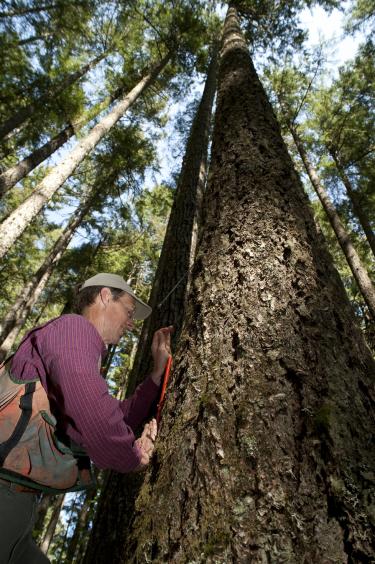Foresters
A forester is trained in forestry—the art and science of managing forests sustainably. In the past, sustainable forest management primarily meant managing forests as a sustainable natural resource by harvesting trees judiciously and strategically to maintain forest health. Now, however, foresters are trained to manage woods for a variety of purposes, including recreation, aesthetics, biodiversity, and conservation.
Foresters are trained to understand how different parts of your woods (the trees, wildlife, soils, water, etc.) interact and how they can be nurtured in a way that meets your needs. Foresters are also familiar with local laws, know what markets exist for different forest products and services, and can help manage the legal and financial aspects of woodland-associated activities. With their technical expertise, you can accomplish more on your land than you might be able to do alone, and you'll be less likely to make expensive mistakes.
There are at least four occasions when you may benefit from hiring a forester:
(1) Doing an initial assessment and valuation of your woods upon purchase;
(2) When you plant trees;
(3) When you thin trees;
(4) When you harvest trees.
The decisions you make at these times are crucial to the long-term health of your woods and it makes sense to invest in a forester's advice.
For example, when you are planning a harvest, a forester can inventory and appraise your timber stands, project forest growth and future value of the standing timber, and determine which trees should be harvested at the current time. They can also help you market your timber and make sure you get a fair price for it, and recommend a logger whose techniques and equipment are compatible with the topography and soils on your property. In this, foresters are like timber sales managers, but a timber sales manager who is not a trained forester may not have sufficient knowledge of and sensitivity to your woods' current and future ecological health.
At planting time, foresters provide invaluable guidance on what to plant, when and where. These decisions should be based on the geography and ecology of your woods, but also on your vision for the woods and the value you derive from them now. Foresters have the knowledge to ensure that your investment in new trees yields maximum value for you.
Most landowners also use foresters for other activities such as creating management plans, boundary line surveys, road construction, and habitat improvement. Many landowners contract with foresters for periodic management and maintenance activities. Much like your pediatrician takes responsibility for the health of your children, including wellness checks, vaccinations, early detection and treatment of illnesses, a forester can monitor your woods and provide what is needed to keep them healthy. He/she will also bring your attention to threats and opportunities and help you find ways to address them.
How can I get more tips?
It’s simple! Enter your email below.

